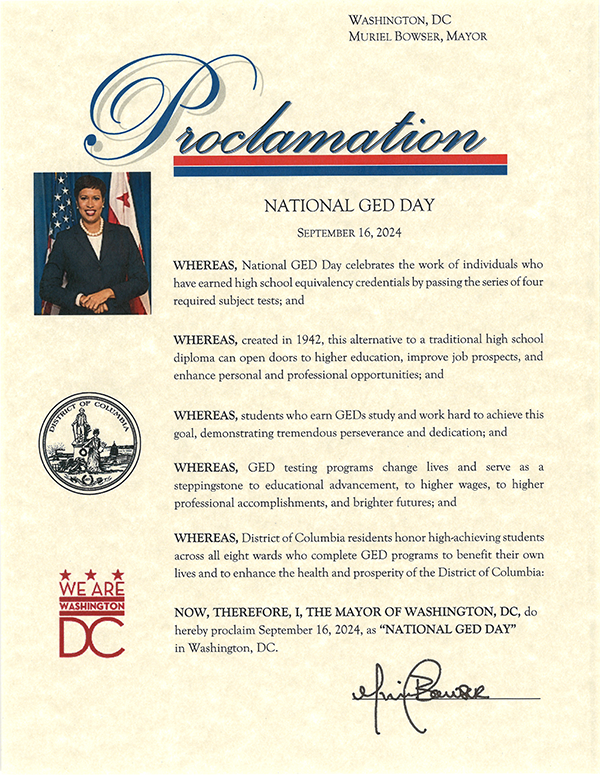Let’s recognize GED graduates, appreciate adult educators and kick off National Adult Education and Family Literacy Week!
I have always thought of the GED as so much more than a test – it’s an entire program that equips learners for success in education and in life, building knowledge and confidence for a brighter, more equitable future for all. This is one of the reasons why we are excited to announce the first annual National GED Day to be celebrated on September 16th. We are proud to raise awareness for the GED and acknowledge the determination and resilience of GED learners, the commitment of educators, and the support of all those who motivate students to succeed.

How can you get involved in National GED Day?
Here is a list of activities to help us celebrate and highlight the importance of educational achievements and lifelong learning. We are honored to include the Proclamation of Washington D.C. Mayor Muriel Bowser. Download this list.
- Celebrate adult learner and adult educator success stories. Post them on your website, local paper, hallway bulletin boards, etc. For more information, see GED posts on Facebook and Instagram.
- Collaborate with local policymakers on a proclamation of National GED Day and hold a recognition event. See example from Mayor Muriel Bowser.
- Educate advocates using resources from the California Council for Adult Education.
- Hold GED celebrations at your center, inviting recent GED graduates to share their journeys with learners.
- Invite GED State Relationship Managers to present on the GED at your center or community.
- Join the pledge to Education & Elevate America, led by the Coalition On Adult Basic Education.
- Hold a job fair connecting adult learners to employment opportunities.
- Host a literacy forum on the intersections between adult and family literacy, poverty, health, and immigration as National GED Day is during National Adult Education and Family Literacy Week.
- Remember to use social media to raise awareness during the week. Tweet facts, post polls or petitions, and share stories. Here are some great examples from scaleLIT’s Adult Education & Family Literacy Week.
- Encourage adult learners to take children to the library that week, help with homework, read a book, and/or visit a bookstore. Please suggest they take photos to be displayed at your adult education program.
